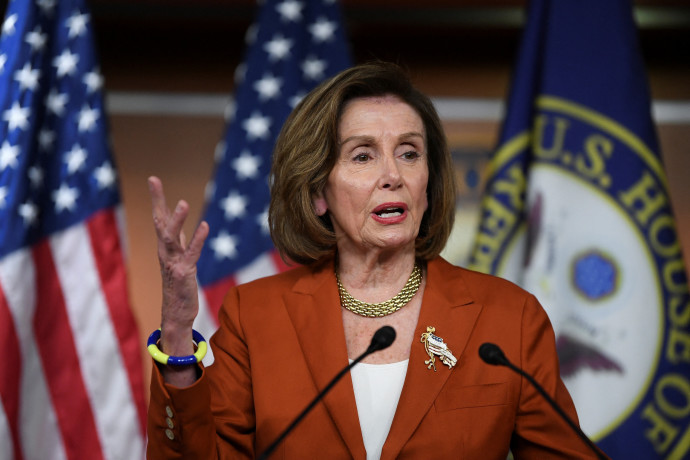As US House Speaker Nancy Pelosi is preparing for her trip to Asia, China held live-fire military drills in the Taiwan Strait on Saturday.
The Naval drills took place off the coast of Fujian province, located opposite Taiwan. The local maritime safety agency issued a warning to the public, saying that the drills would be conducted near Pingtan, a county about 130 kilometers from Hsinchu city across the strait in northwestern Taiwan.
Beijing has in the past warned there will be consequences if Pelosi visits Taiwan, including a defense ministry statement that implied China might use military force in response.
Senior Chinese officials have expressed strong opposition to Pelosi's planned visit to Taiwan. A visit by Pelosi would "severely undermine China's sovereignty and territorial integrity, gravely impact the foundation of China-US relations and send a seriously wrong signal to Taiwan independence forces," Foreign Ministry spokesperson Zhao Lijian said during a briefing earlier this month.
In addition, Zhao called on the US to cancel Pelosi's plans, stop official exchanges with Taiwan and stop "creating tensions" across the Taiwan Straits. Zhao warned that if the US "insists" on its current course of action, China will take "resolute and strong" measures to safeguard its sovereignty and national security while the US should assume full responsibility for any consequences.

"China will resolutely safeguard national sovereignty and territorial integrity," an air force spokesman was quoted by state media as saying on Sunday.
He added that the air force has many types of fighter jets capable of circling "the precious island of our motherland," a reference to Taiwan.
“The Chinese mainland will definitely put up a sturdy fight to the end to thwart Pelosi’s visit to Taiwan, without fear of any escalation,” Hu Xijin, a commentator and former editor-in-chief of the Communist Party’s Global Times newspaper, wrote in an editorial for the publication. "The US and Taiwan must fully understand that this red line is a high-voltage one that they cannot step on.”
Xi-Biden talks
The rising tensions provided the backdrop for a lengthy phone call between US President Joe Biden and Chinese leader Xi Jinping that took place on Thursday, in which Xi warned the US not to "play with fire" on the Taiwan issue — though neither side confirmed if Pelosi's reported plans were discussed. Preparation for the call predated reports of the possible trip.
President Xi stressed the importance of the three China-US joint communiqués signed between 1972 and 1982 and said that the one-China principle serves as the political foundation for bilateral relations.
Taiwan figured prominently in Xi and Biden's two-hour-and-17-minute phone call, with the Chinese leader urging Washington to honor existing agreements with Beijing both "in word and in deed," according to a readout from China's Foreign Ministry. The statement added that China would "resolutely safeguard" its national sovereignty.
This is not the first time Xi has used such language to discourage Washington from publicly supporting Taiwan. Last November, Xi also warned the US president in a virtual summit that China was prepared to take “decisive measures” if Taiwan makes any moves towards independence that cross Beijing’s red lines.
What is the stance of the US?
For his part, Biden reiterated that US policy "had not changed," according to a White House readout of the call.
"The United States strongly opposes unilateral efforts to change the status quo or undermine peace and stability across the Taiwan Strait," Biden said, according to the statement.
"The United States strongly opposes unilateral efforts to change the status quo or undermine peace and stability across the Taiwan Strait."
US President Joe Biden
The United States, in turn, has seen no evidence of looming Chinese military activity against Taiwan, White House national security spokesperson John Kirby said on Friday when asked about the potential visit by US House of Representatives Speaker Nancy Pelosi.
"(We've) seen no physical, tangible indications of anything untoward with respect to Taiwan," Kirby told reporters.
